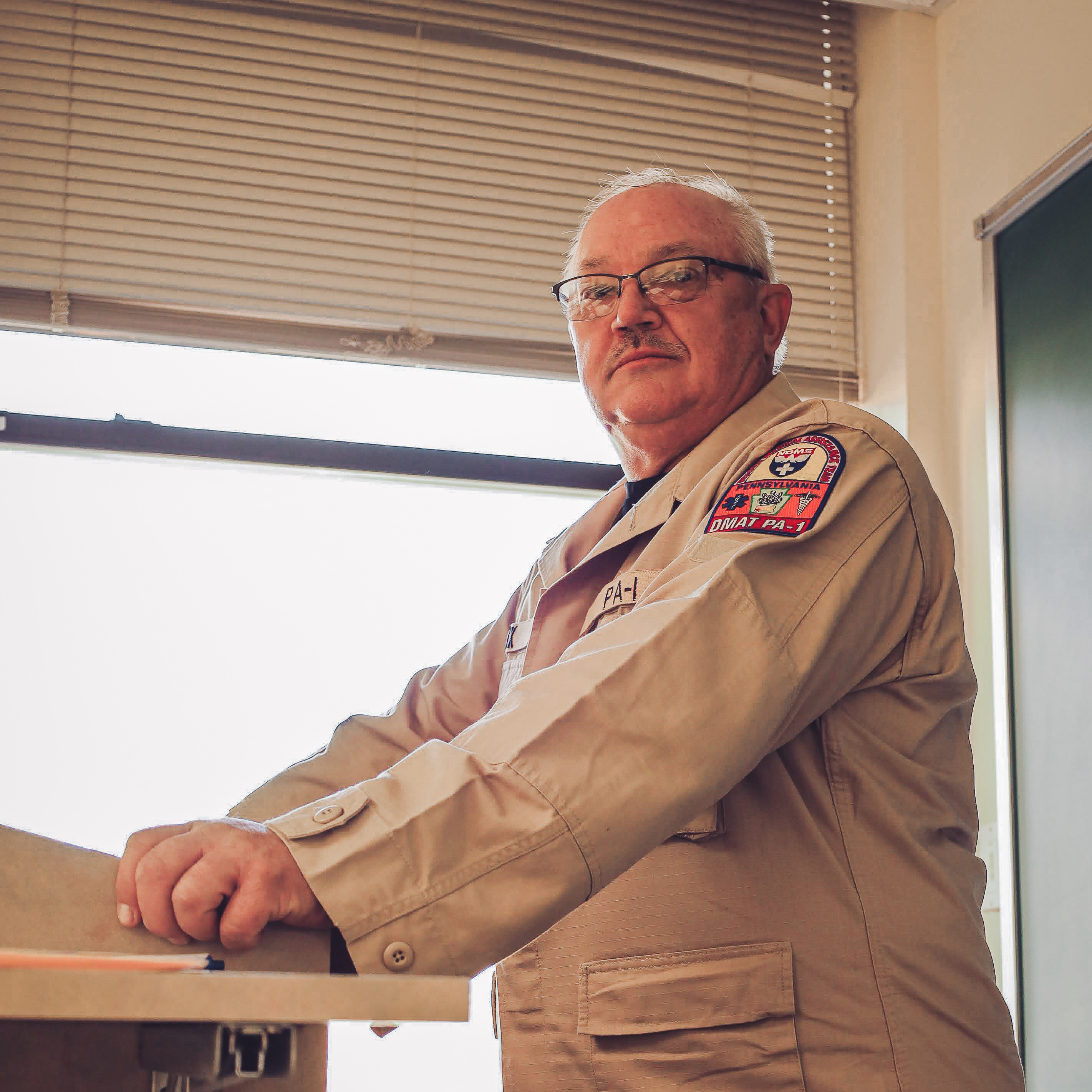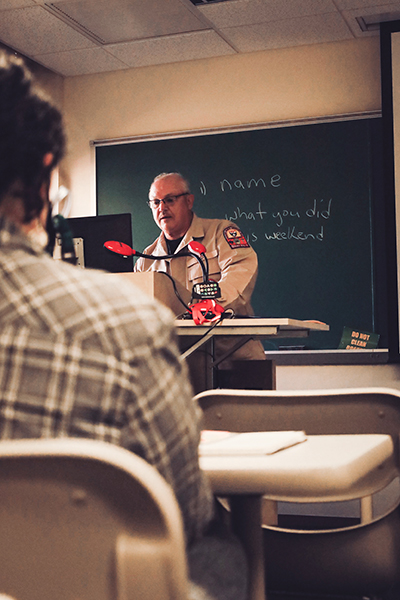Point Park University Instructor Roy Cox Assists with Hurricane Ida Relief Efforts in Louisiana Thursday, September 30, 2021

"The biggest reward is knowing that you've gone to help people and that our community was a resource for their community. That's what it's all about – helping fellow mankind in time of need. That's what we should be doing."
Point Park University instructor Roy Cox, D.Ed., was dumping buckets of water out of the basement of his home in the Lincoln Place neighborhood of Pittsburgh when he received the call to pack up, get to an airport and head to New Orleans.
Hurricane Ida, the same storm that brought heavy rain and winds to western Pennsylvania in early September, ravaged neighborhoods in and around the Big Easy, prompting the U.S. government to deploy the PA1 group of the National Disaster Medical Assistance Team (DMAT), a federal reserve unit with which Cox has responded to numerous disasters since joining in 1995. As a paramedic and training officer, Cox, along with a team of doctors, nurses, pharmacists, X-ray technicians and paramedics, worked 12 to 14-hour days for two weeks at Oschner Medical Center.
"The biggest reward is knowing that you've gone to help people and that our community was a resource for their community," he said. "That's what it's all about – helping fellow mankind in time of need. That's what we should be doing."
Cox, who recently retired from the City of Pittsburgh EMS as district chief, teaches courses in public administration, as well as COMM 101, Point Park's oral communication and presentation core curriculum course.
In Louisiana, Cox observed twisted and fallen trees, mangled cyclone fences and roofs ripped away from homes and businesses. The area's power grid was down, and cell phone towers were damaged. 
DMAT members helped "decompress" Oschner Medical Center, assisting hospital staff with patient care. Maladies included injuries sustained during the hurricane, as well as COVID-19.
"There were four hospitals in the immediate area," he said. "Two of them were flooded, had no power and were closed. Another one, the road to get to the hospital was closed because it was washed out. The hospital we were at was the only open hospital within 50 miles, the only one where people could come by personal means or by ambulance to get medical care."
As a DMAT member, Cox has mandatory, on-call months, but the unit may also be called upon outside of that time frame depending on disaster severity and need. Cox also responded to Hurricane Matthew in 2016 and Hurricanes Harvey and Irma in 2017. Last year, he worked at several military bases to monitor and care for passengers coming off of cruise ships at the start of the COVID-19 outbreak. His team also cared for U.S. embassy staff from China who returned to the states during the peak of the outbreak in China.
Cox is thankful that his fellow Point Park faculty and staff are understanding and encouraging of his work with the DMAT.
"Yes, I feel bad leaving my students and going to help with disasters, but I get to come back and tell them about it and share the experience," he said. "It's our responsibility as citizens and reservists to help each other and be there for each other. If a hurricane or a tornado came here and did that to Pittsburgh, I would be appreciative and hope that people would come and help us. The theme is, 'Do unto others as you would hope they would do unto you.'"
Cox also trains others on becoming public safety educators and is a state evaluator for new paramedics and EMTs. All of his experiences help inform his public administration classes.
"I am able to provide relevant examples and photos to students," he said. "It helps me build a foundation educationally, so that when I'm talking about disaster planning, patient care and quality assurance, I can relate that information from textbook to reality, and that's key. As a faculty member, I'm living the reality, so when I teach my students, I can say, 'In this chapter, it talks about this, but let's make it real.' Reality is where you truly learn."
Cox is also able to stay up-to-date on emergency preparedness, disasters and relief as each evolves over time.
"I help students understand the variations that can occur," he said. "That's the nice thing Point Park offers – current practitioners in the fields that they teach."

